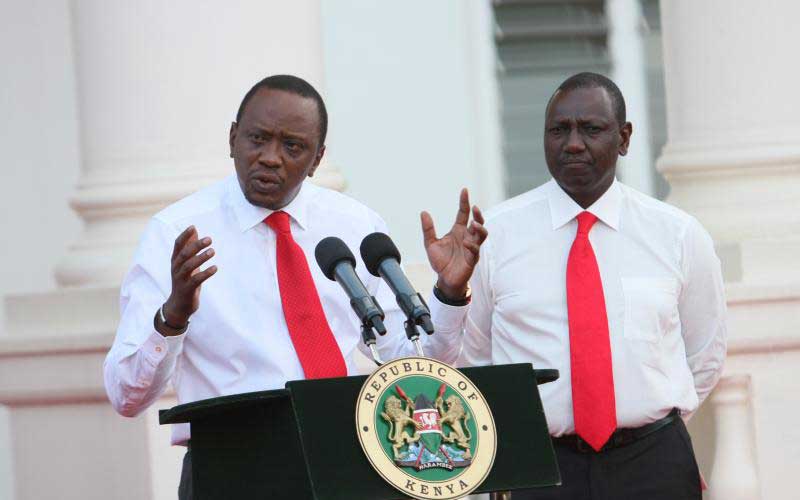×
The Standard e-Paper
Join Thousands Daily

President Uhuru Kenyatta unveils his first Cabinet at State House in 2013 accompanied by his deputy William Ruto. [File, Standard]
President Uhuru Kenyatta and his deputy William Ruto’s government is seven years old this week, but the camaraderie that defined their first term has faded and their union now faces a hostile break-up.